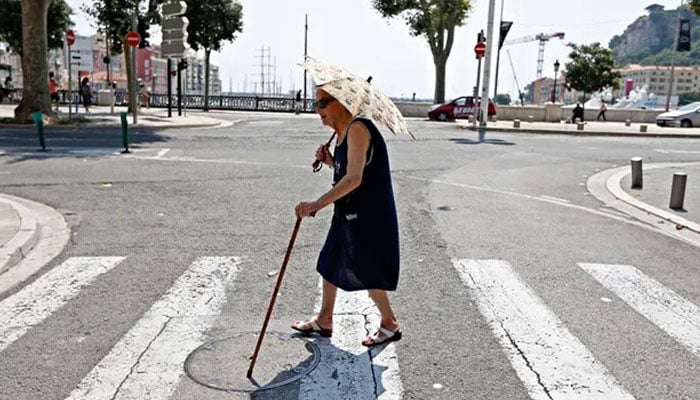[ad_1]

As temperatures continue to soar, the summer heat poses a significant threat to our beloved seniors. With rising concerns over heat stress among the elderly, experts are sharing crucial tips to help seniors stay cool and safe during scorching weather.
According to Associate Professor Jason Lee Kai Wei, head of the Heat Resilience and Performance Centre at the National University of Singapore, there’s an essential yet surprising way to combat the heat: drinking cold water. It’s time to debunk the myths and equip our seniors with the knowledge they need to protect themselves.
As we age, our bodies undergo changes that make it harder to handle high temperatures. Family physician Dr Tay Ruixin explains, “Older individuals produce less sweat per sweat gland and have a lower overall sweat rate for the same heat load conditions.” In addition, reduced blood flow to the skin impacts heat dissipation, making it challenging for seniors to cool down effectively.
To make matters more concerning, certain medications and chronic illnesses can increase seniors’ sensitivity to heat. Professor Lee warns, “Some medications that are meant to treat diseases may potentially compromise their thermoregulation and predispose them to a higher risk of heat injury.” This means that older adults need to be extra cautious during heatwaves, especially if they are taking any medications or have underlying health conditions.
Dehydration is another critical concern for seniors during hot weather. Consultant Dr Kuan Ling Yee highlights that “older individuals have decreased thirst sensation, and their kidneys’ ability to conserve sodium and water also declines with advancing age.” This puts them at a higher risk of dehydration, which can lead to confusion and lethargy. Dr Kuan stresses the importance of seniors consuming enough fluids, including soups, tea, and their preferred drinks, to stay hydrated.
The experts recommend several measures to help seniors beat the heat and stay safe. First and foremost, they advise creating a suitable physical environment by keeping seniors sheltered from direct sunlight. Additionally, sprinkling the skin with water and using a fan in dry and hot environments can effectively decrease heat strain. The recently introduced heat stress advisory provides valuable guidance on adjusting outdoor activities based on the heat stress level, ensuring that seniors can enjoy the summer while minimising health risks.
[ad_2]
Source link
